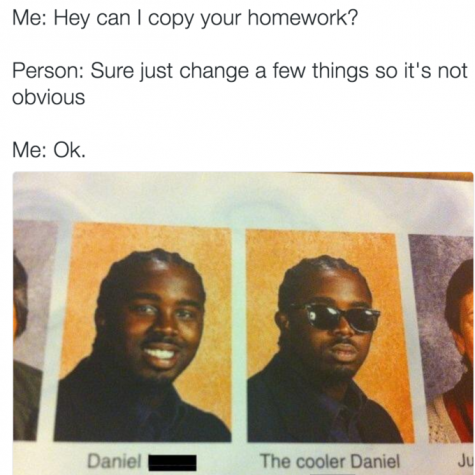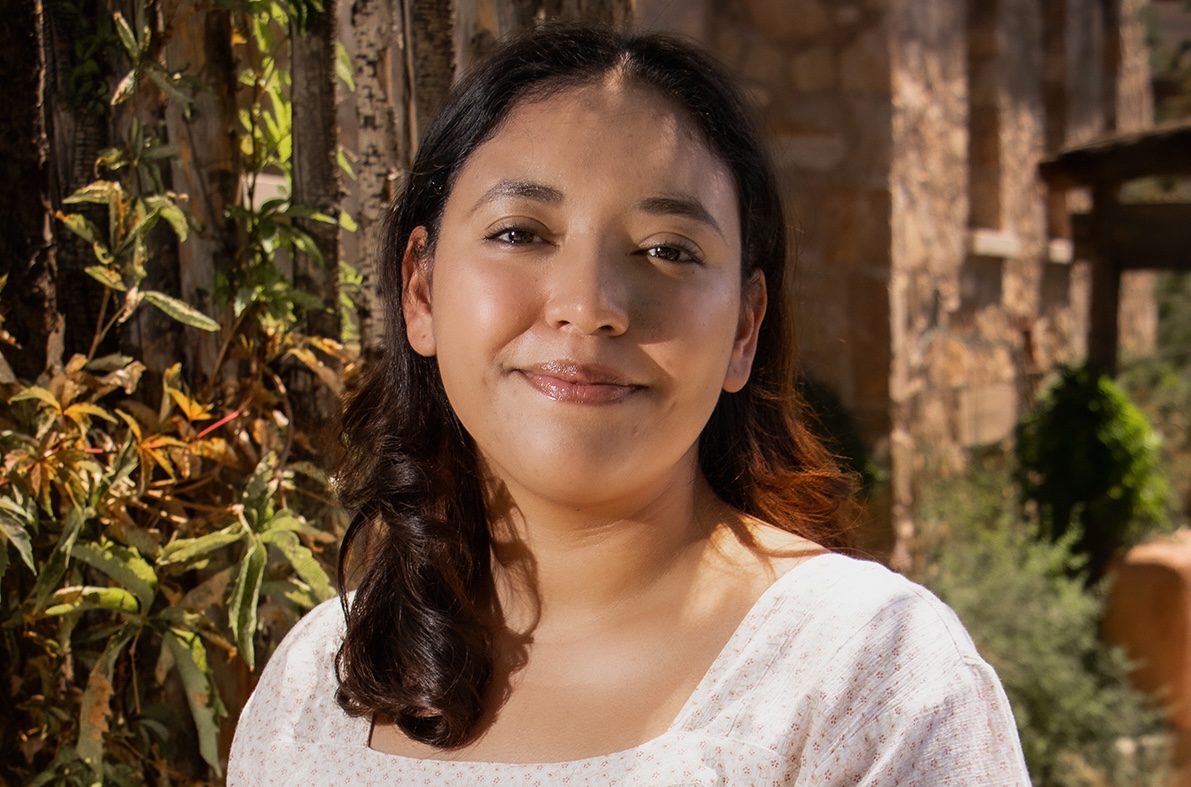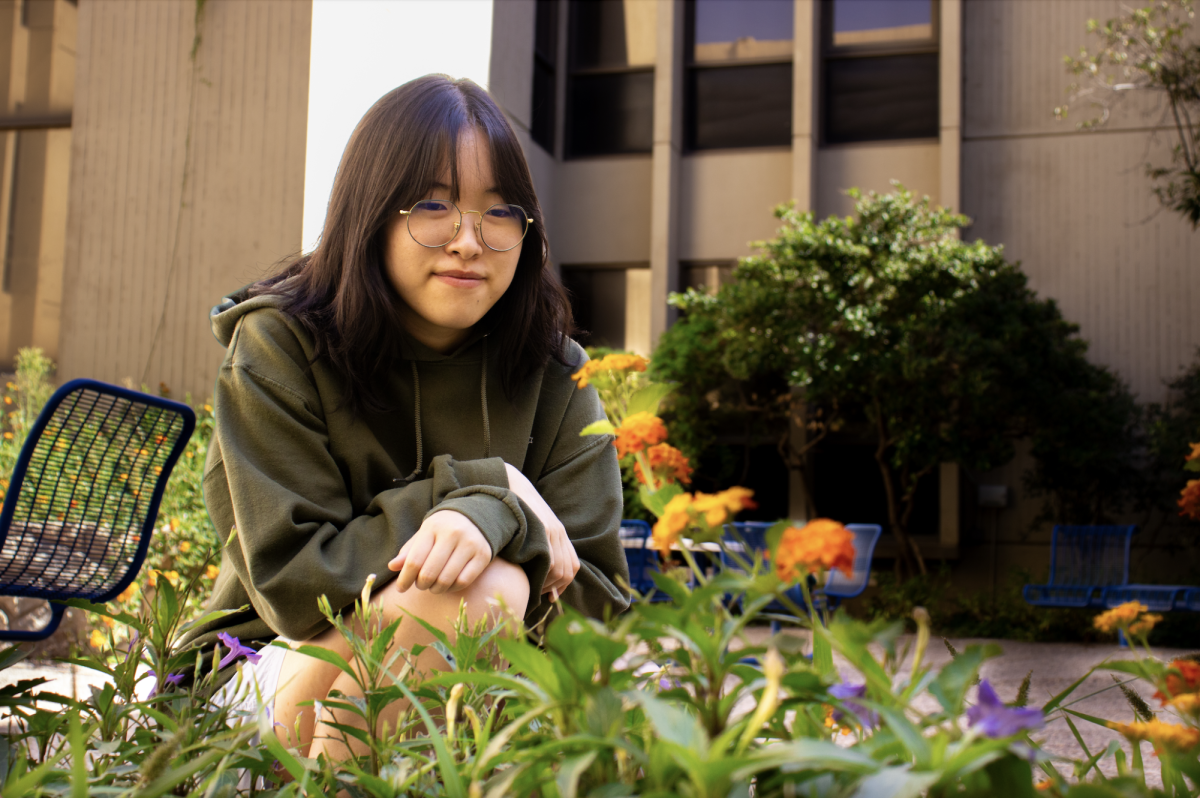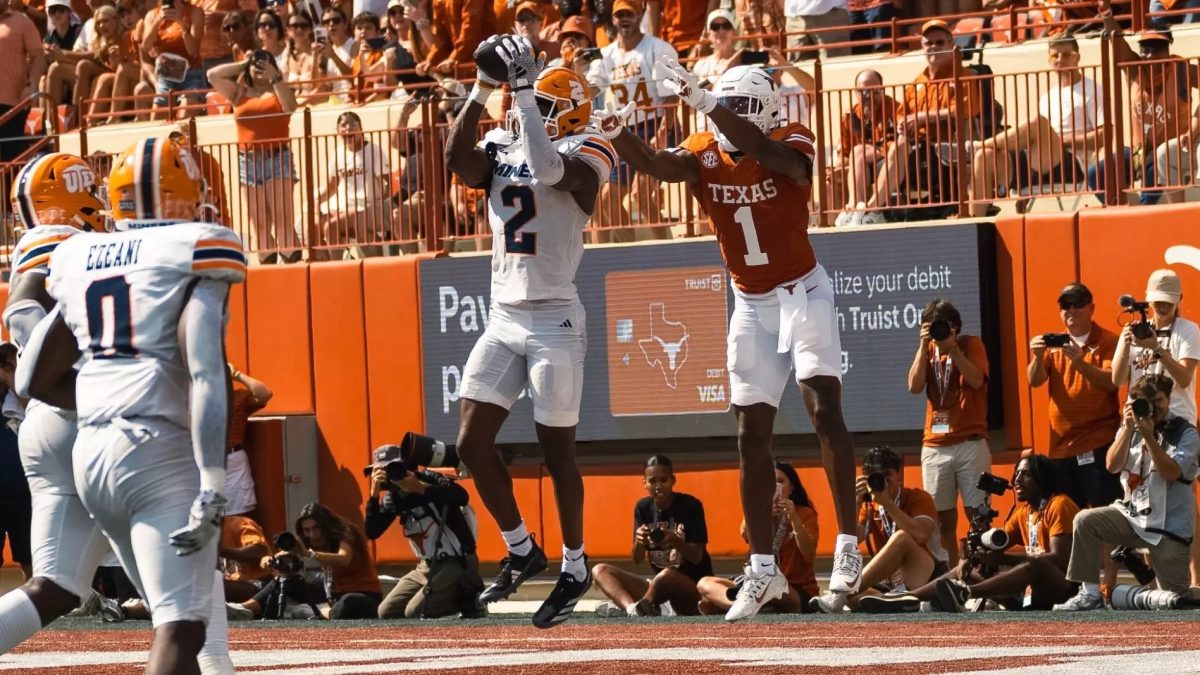Editor’s note: The two high school teachers mentioned in this article are only referred to by parts of their names at their request. Doing so also protects them from any action by school administration.
Since the very beginning of our academic careers, we have been told to never cheat. We hear it over our shoulders during exams as our teachers stalk like hawks and teaching assistants prowl the room like a pack of wolves checking our every move.
We all know the consequences of plagiarism; expulsion at the highest-degrading degree, a mark on your permanent record and the shame that comes with it.
But in the “new normal” of today’s COVID-19 regulations, a new change has been stirring behind the curtains of education and that is the increasing use of plagiarism among high school students.
When the option to turn off your camera is there and teachers can do nothing about it, the possibility of cheating comes easy for some.
I spoke with two El Paso high school teachers and they said the amount of students plagiarizing and cheating has increased.
“Kids are failing at a rate no one has seen before and with grades so low they are already in jeopardy of losing credit for the first semester.” Carlos, a high school biology teacher of over fourteen years, said.
But it’s not just teachers with seniority who have noticed this trend. Uribe, a geometry and engineering teacher of two years, also spoke on this rising trend.
“Grades are abysmal right now,” Uribe said. “I have some classes where there are more kids failing than not.”
And if that wasn’t bad enough, teachers also feel obliged to mitigate this seemingly insurmountable challenge caused by the pandemic.
“I’ve done a lot in terms of lessening the workload compared to last year, as well as making sure everything could be completed in class,” Uribe said. “But every one of my students that is failing is because they simply aren’t attempting to do any work.”
Carlos elaborated further on this, pressing the need for students to have someone around to motivate them through the education system.
“Parents are often at work and it is up to students to wake up and attend class,” Carlos said. “In many cases, a student will choose to stay in bed until 2 p.m. Without teachers constantly nagging at students, they are not mature enough to get things done on their own.”
Let’s be honest, many of us would have taken any chance in high school to disregard school and sleep until the afternoon, and like Carlos said, some high school students simply think school sucks. How do you possibly remedy that when you need students to log on in the first place?
While most of us, including students, are still at home with Google at our fingertips to provide all the answers we could ever need, the temptation to cheat is staring students right in the face every single day — and some don’t even care if it’s obvious that they cheated.
“There are some signs of cheating that have stayed constant before and after quarantine,” Uribe said. “A student’s free response on a short answer type question can give away cheating if the syntax and diction seem out of character for that student. A quick Google search can show whether a student directly copy and pasted from an internet source.”
Like an internet meme goes: “Hey can I copy your homework?” And the response is, “Sure just change a few things so it’s not obvious.”

If high schoolers can’t change up the plagiarism a bit, what makes them think they’ll be able to get away with it in college?
Uribe went on to talk about how this form of cheating, — copy and pasting from the internet — originates from the new reality that kids are currently living majority of their lives on the internet.
“Students aren’t really making new friends, just sticking to those they already know,” he said, which shows not just a problem with kids and their grades, but also their social networking skills.
So why does cheating occur in the first place?
“Cheating occurs because kids are lazy,” Carlos said, but there are of course exceptions — the ones who are desperately trying to keep a good academic record.
“Once in a while a good kid will cheat for fear of getting a zero for an assignment they forgot to do,” he added.
Carlos has a good point, there are students who have struggled in the classroom setting and have done better because of online school.
I’ll admit, I too cheated in high school and I’m sure many have also, but what’s different is this simple notion of making an effort to not get caught. From what teachers have told me, pandemic high schoolers nowadays seem to not care.
Call it what you want, but when I copied and pasted from Google then reworded my answer, I actually felt as if I learned something from having to reword it in my own vocabulary and diction. By doing so, I put the material into my own understanding because I was making the answer mine, the same way as asking a friend for an answer and rewording it.
When it comes to cheating in a university setting, students are held to the discretion of their professor, but the ramifications are by far more severe like not being refunded for your class payment, possible loss of financial aid, academic probation and even legal ramifications, according to UTEP’s website.
But what Uribe and Carlos do is evaluate cheating on a case-by-case basis by either giving a failing grade or reporting the student to school administration.
“The protocol for cheating is an automatic zero which is usually enough to discourage cheating,” Carlos said. “Most high school kids who rely heavily on cheating are bad at it.”
Uribe usually provides students with a second chance.
“The student gets a zero for that assignment,” Uribe said. “I often allow them a chance to make it up, after having a talk with them. Doing this does run the risk that a student decides to cheat again if they think they got off easy, but I care that they learn, and I feel like if I can get a student to attempt the work that they’ll be better off than potentially shutting down after taking a big hit to their grade.”
It’s not that teachers don’t care, because they do, but it is rather some students hold little consideration toward their education, and that is where the root of the problem, I think, lies.
No generation has ever gone through online education for this long. This is a new lifestyle that still requires adjusting to. The responsibility now falls on the parents to monitor their children and ensure they’re participating in school, because when that webcam is dark, and the Zoom call is empty, it shows our education system is failing in a new level we have never seen before.
Are younger generations ready for college? Some students may be ready, but for many others who simply don’t thrive in online classes, the pandemic stole their education this year. The true impact of this disastrous pandemic on K-12 education is yet to be seen.
Sven Kline may be reached at [email protected]; @SvenKline on Twitter.









